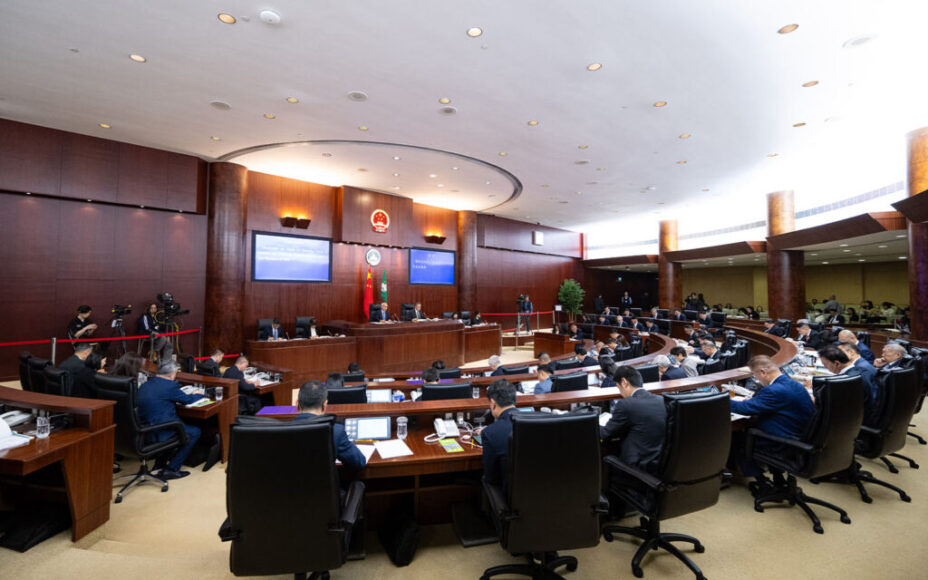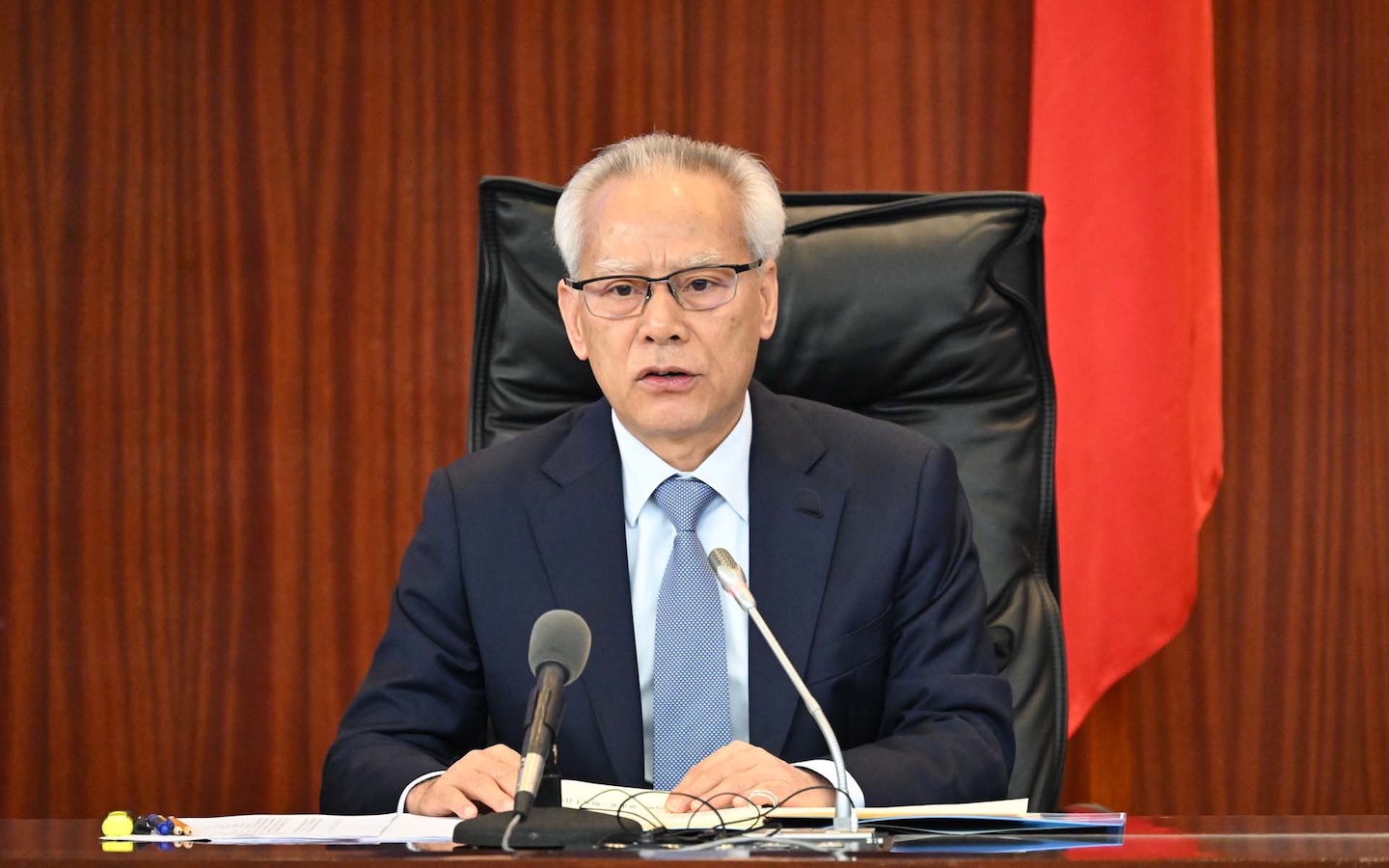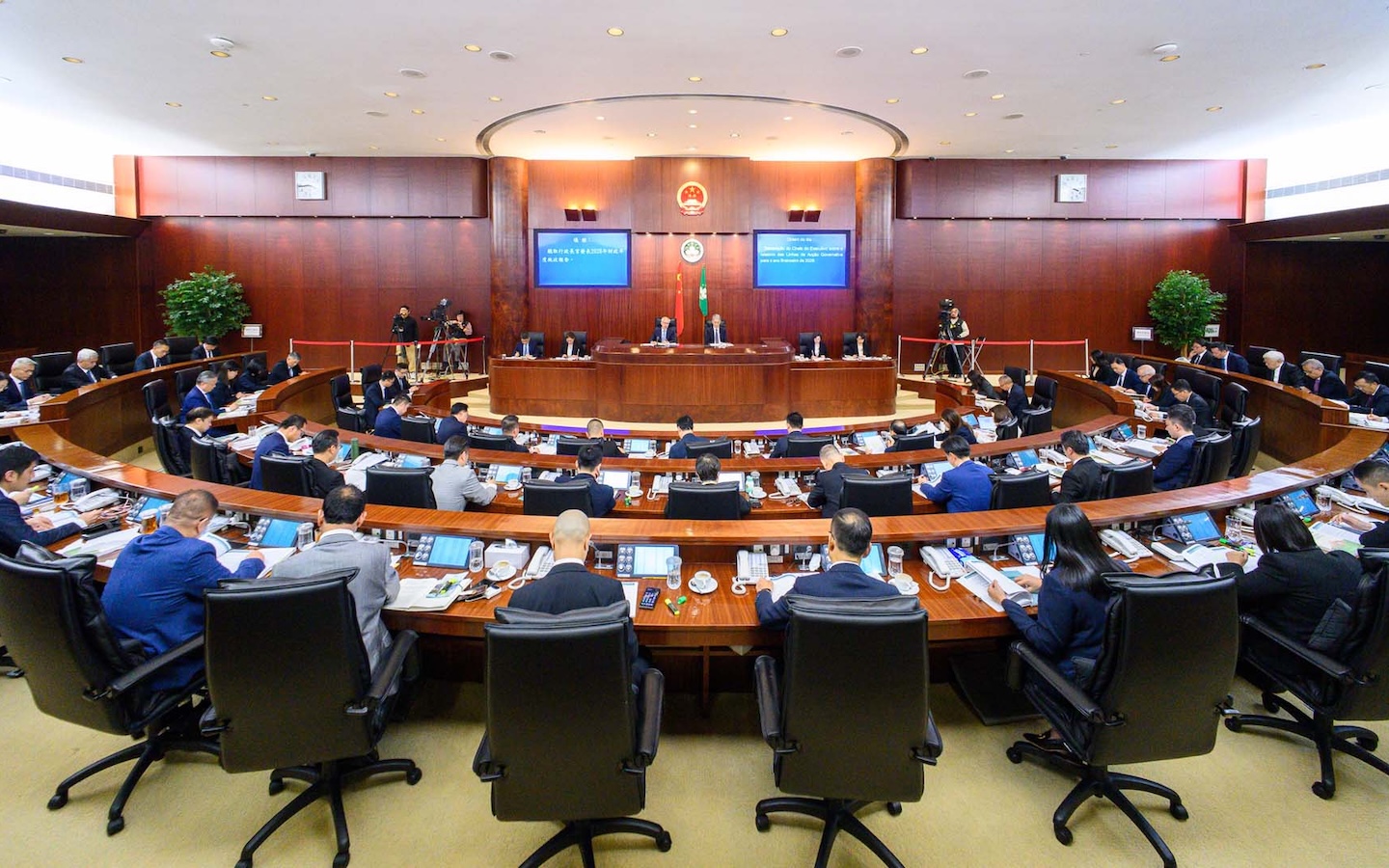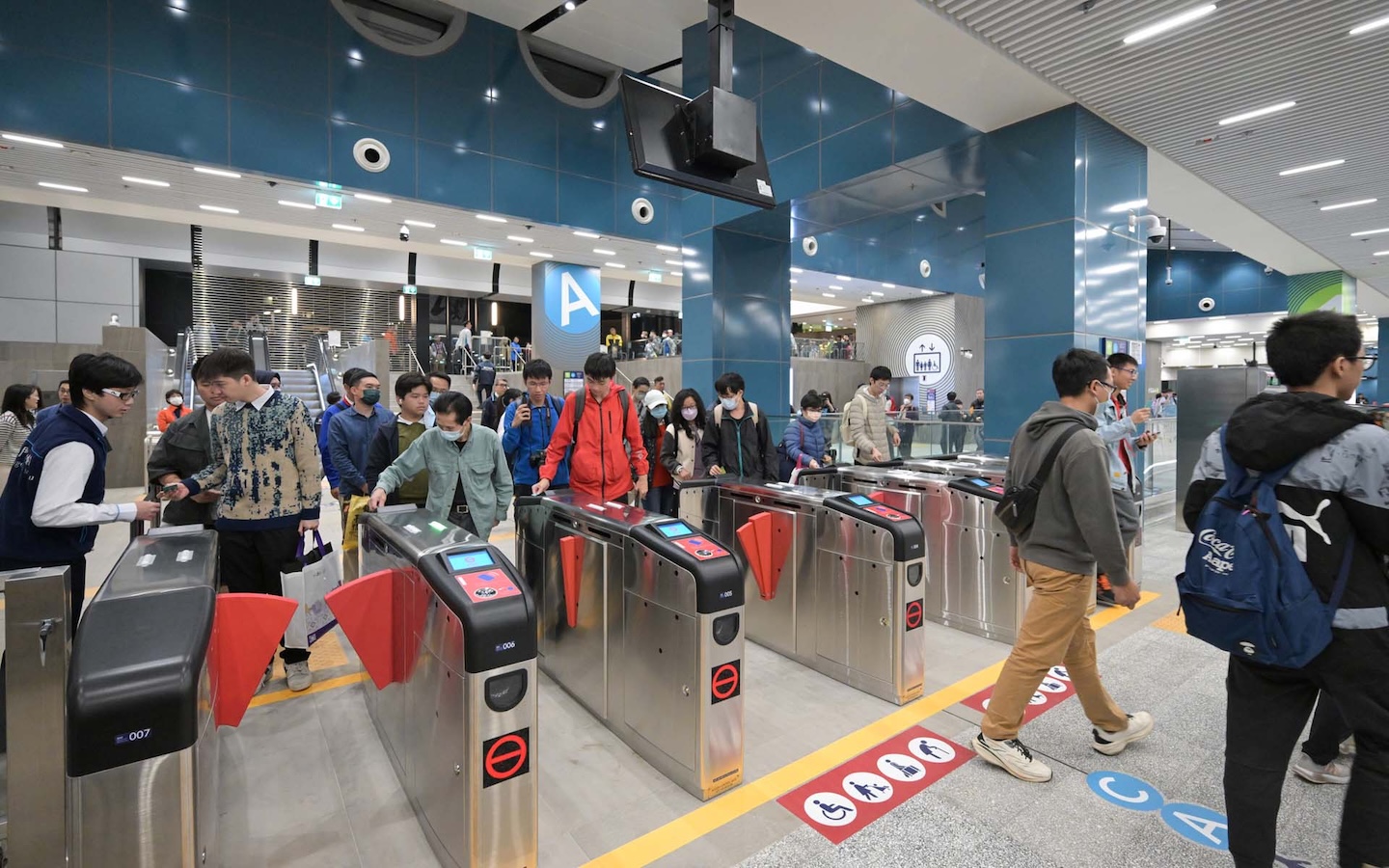In April, Chief Executive Sam Hou Fai delivered Macao’s 2025 Policy Address at the Legislative Assembly. In doing so, he presented a comprehensive roadmap for the Special Administrative Region (SAR)’s development over the coming year. The speech was framed by the forward-looking theme ‘Innovate to Elevate; Forge Ahead to Break New Ground’.
Sam’s address, his first since taking office in December, set out clear priorities for his administration. To drive economic diversification; improve public wellbeing; enhance governance through stronger administrative coordination; and deepen the city’s integration with national development strategies.
Speaking to lawmakers, Sam reaffirmed his commitment to working in close cooperation with all sectors of society to move Macao forward into a new chapter of progress and opportunity. He reiterated a vision of the city introduced in his New Year’s message to its people, that of a law-based, vibrant, cultural and blissful Macao. The chief executive also encouraged the city’s residents to study and implement the spirit of President Xi Jinping’s important speeches delivered during his December visit to Macao.
Beyond the SAR’s borders
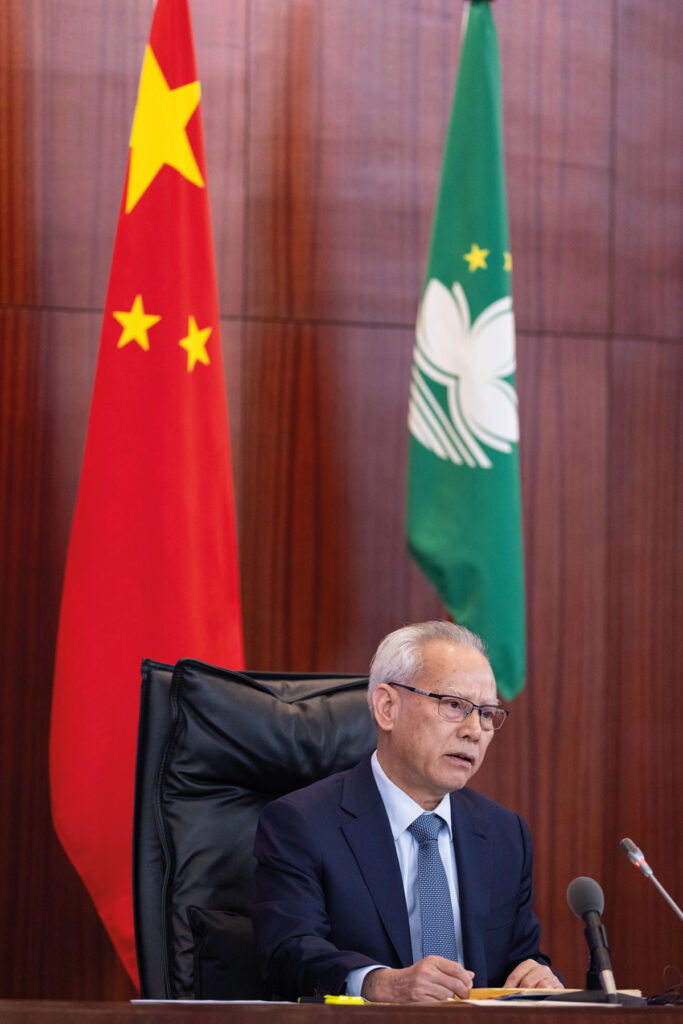
Sam stressed the importance of looking beyond the SAR’s landmass to support sustainable growth and appropriate economic diversification. This included strengthening ties with Guangdong Province and Hong Kong, Macao’s nearest neighbours and partners within the Greater Bay Area (GBA), as well as fostering deeper connections with Portuguese-speaking countries (PSCs) across Europe, Africa, Asia and South America. He also pledged to enhance cooperation with the Chinese mainland and the wider international community.
In this area, things have already been moving fast. Macao officials, sometimes joined by GBA officials, have led several trade delegations to Europe in recent months, exploring avenues for collaboration with countries including Belgium, France, Hungary, Luxembourg, Monaco, Portugal and Spain.
In April, officials from Macao, Zhuhai and the Guangdong-Macao Intensive Cooperation Zone in Hengqin travelled to Brazil for their first joint economic and trade seminar in a PSC, and toured three cities within the South American giant – one of China’s most important trade partners.
They also helped pull off the Guangdong-Hong Kong-Macao GBA and Africa Economic and Trade Cooperation Conference in Egypt, in May, to promote investment cooperation between the GBA and Africa.
Closer to home, Sam emphasised Hengqin’s central role in Macao’s diversification strategy. The 106-square-kilometre island, part of Zhuhai Municipality, provides Macao with much-needed space to develop. Sam said his administration would work diligently towards achieving Hengqin’s second-stage development goals by 2029. These relate to regulatory harmonisation between Macao and the Cooperation Zone, efficient cross-boundary flows, and support for Macao’s emerging industries – traditional Chinese medicine (TCM), modern financial services, high-tech industries and large-scale event hosting.
To strengthen Macao’s presence in Hengqin, additional civil servants would be appointed to key committees and working bodies. Pilot schemes would be introduced, such as the appointment of non-permanent judges for the creation of a collective court in the Cooperation Zone. Measures to enhance connectivity included facilitating access for single-plate vehicles, expanding public services available in Hengqin, and aligning its administrative environment with Macao’s governance model.
Regarding ties within the GBA, Sam said he hoped to help coordinate a single free-trade zone between the three regions and strengthen their infrastructure connectivity.
Sam shared his vision of the GBA as the future for many of Macao’s young people. As such, he proposed rolling out a series of schemes to support Macao residents seeking internships and employment in Guangdong Province’s nine cities. One of these would be a monthly subsidy scheme offering 5,000 patacas to eligible Macao residents taking up opportunities either in Guangdong or in other parts of the mainland.
Macao’s role as a platform for cooperation between China and PSCs would also be expanded. The government would promote partnerships not only between mainland and Lusophone businesses but also between PSC enterprises and Macao-based firms. An ongoing profit tax exemption for Macao businesses earning income from PSCs – such as Portugal, Brazil and Angola – aimed to incentivise this cooperation.
Social welfare reform
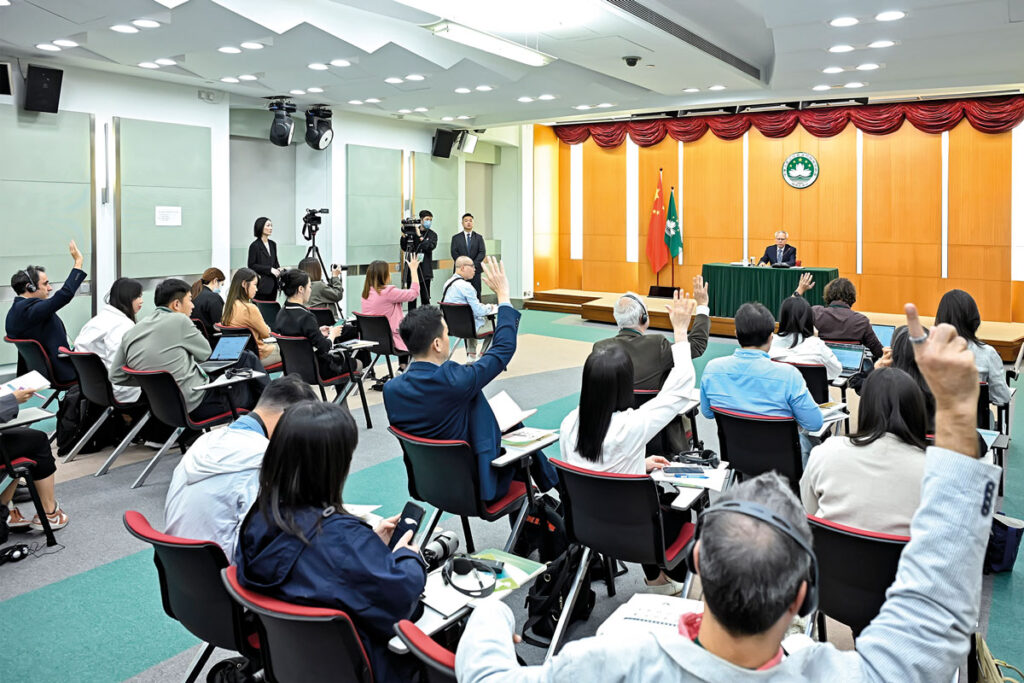
Sam unveiled a comprehensive set of social welfare reforms to strengthen support for vulnerable groups and address demographic challenges. These reforms reflected a broader commitment to enhancing public wellbeing and ensuring long-term system sustainability.
To address a declining birth rate and support families, a new childcare allowance of 1,500 patacas per month would be introduced for children under the age of three, benefiting approximately 15,000 children in 2025. The marriage allowance would increase to 2,220 patacas per spouse, and the birth allowance would rise to 6,500 patacas per parent.
Elderly residents would see enhanced benefits, with the monthly pension rising to 3,900 patacas, and the old age allowance being upped to 10,000 patacas per year. The government also said it would set up a new elderly daycare centre in New Urban Zone Area A, an artificial island to the east of the Outer Harbour Ferry Terminal.
Support for residents with disabilities would be expanded, too. The annual subsidy for individuals with lower-level needs would increase to 10,000 patacas, while those with higher-level needs would receive 20,000 patacas. Plans were also in place to build new treatment facilities and a comprehensive rehabilitation centre.
The value of health vouchers for permanent residents, meanwhile, would jump by over 16 percent, reaching 700 patacas.
Macao’s annual wealth distribution scheme would continue at current levels: 10,000 patacas for permanent residents and 6,000 patacas for non-permanent residents. However, officials were trying to optimise the scheme. Any resulting fiscal savings would be redirected to targeted welfare initiatives and community development.
Major development projects in the making
During a question-and-answer session at the Legislative Assembly following his Policy Address, the chief executive announced that the government was actively identifying suitable sites for two major development projects: an international integrated tourism and cultural zone, and a science and technology research and development industrial park.
Both projects were part of the government’s long-term strategy for economic diversification and are expected to enter the public consultation phase in the second half of 2025. Multiple sites were being considered for each.
The proposed tourism and cultural zone was intended to reinforce Macao’s status as a World Centre of Tourism and Leisure while promoting cultural exchange. Key facilities envisioned include the Macao National Cultural Museum, the Macao International Performing Arts Centre, and the International Contemporary Art Museum.
The science and technology park would focus on fostering innovation, supporting high-tech industries, and serving as a launchpad for mainland tech firms looking to expand internationally. It was also expected to attract global innovation projects.
Other key infrastructure initiatives included the Macao-Hengqin International Education (University) Town and the development of Macao as an international air transport hub. These projects would be designed to support Macao’s long-term economic resilience and reinforce its role as a dynamic, diversified city within the GBA.
Financial outlook and the push for diversification
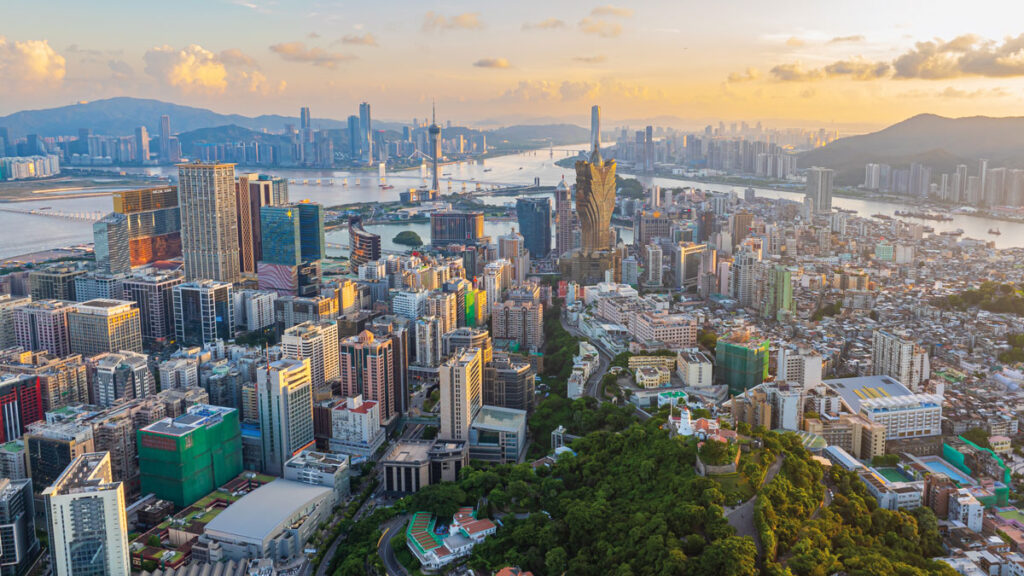
The government estimated total expenditure for 2025 would reach about 115 billion patacas. Sam acknowledged that if average monthly gross gaming revenue fell, Macao could face a fiscal deficit – a possibility that highlights the importance of further reducing the SAR’s reliance on gaming taxes and advancing its economic diversification.
Key diversification efforts in 2025 included supporting the global expansion of TCM products, promoting medical tourism through leveraging the “Peking Union” brand to boost Macao Union Hospital; expanding the city’s bond market while cultivating and attracting more financial talent; and promoting the research and development of a ‘Digital Macao Pataca’.
Additional initiatives would include hosting international cultural, artistic and sporting events; revitalising six urban districts; and increasing support for small and medium-sized enterprises.
As Macao enters a new phase of development, these strategic initiatives reflect the government’s determination to build a more resilient, diverse and forward-looking economy. One that is closely aligned with national priorities and deeply rooted in serving the long-term interests of its residents.
